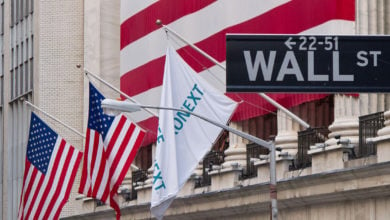On April 4, Don Blankenship, the ex-CEO of Massey Energy Company was sentenced to one year for his role in safety violations that killed 29 miners in the 2010 Upper Big Branch Mine explosion in West Virginia.
Although Blankenship’s intent to not follow safety laws led to the horrifying deaths of 29 miners, that’s not what he was convicted for last December and sentenced for this month. Instead, the state that manages the affairs of the ruling class merely handed out a slap on the wrist, convicting him of conspiring to violate federal mine safety laws. For those unfamiliar with the few laws that serve to keep ruling class circles in line—that’s a misdemeanor charge with a maximum sentence of 1 year in prison.
Compare that to the charges handed out for crimes committed on any street corner in U.S. working class or oppressed neighborhoods. Not to mention Blankenship’s crime resulted in the deadliest mine disaster in 40 years.
The court stuck him with a $250,000 fine; however, he was acquitted of two counts of making false statements—charges that would have added 30 more years to his sentence. Remember, Blankenship left Massey Energy with an $86 million retirement package and $10.6 million salary—so this fine is like a parking ticket to him. How could he enjoy such a juicy package from a prison cell?
In addition to the maximum sentence for this misdemeanor, Blankenship was scolded in court. Imagine that. Judge Irene Mistich cut him off from speaking, saying to the capitalist: “You should be someone that we are able to tout as a West Virginia success story.”
The 29 families of those killed in the mine were not allowed to say a word in the court room.
Outside the courtroom in Charleston, WV, Tommy Davis, who lost his brother, son and nephew in the Upper Big Branch mine disaster said, “They need harsher penalties for people like that who put greed and money over human life.”
“It should have been a felony,” said Gary Quarles, whose son was among those who died.
Rags to riches storyline unravels
“It’s important to me that everyone knows that I am not guilty of a crime,” exulted Blankenship in the courtroom.
Under capitalism, business decisions that make money, but result in workers’ deaths are, in fact, not a crime. But it points to the larger issue of a “justice” system where profit reigns.
The ruling class touted Blankenship’s local working-class background to promote their narrative of hard work leading one to be the boss of one’s peers someday. The story doesn’t end as they expected.
The tears shed by Blankenship and other ruling class figures are not for the miners who died in the explosion, but for the unraveling of the “false rags to riches” story that about how Blankenship came from the same trailers that line the highways of West Virginia and Kentucky where miners live to make super profits for companies like Massey Energy Company.
In the drive for profit, it doesn’t matter what a capitalist’s parents did to make ends meet—it matters what they do for their shareholders now.
Blankenship worked to break the back of the United Mine Workers Union (UMWU) contracting work to non-union subsidiaries that he created to avoid paying pensions or providing for workers’ compensation for one of the most dangerous jobs.
When the UMWU began to picket these unfair labor practices, Blankenship didn’t stand with his school yard buddies, but instead went to Mingo County Judge Spike Maynard who issued an injunction against the union, restricting picketing and fining the collective bargaining unit $200,000—a fine similar to that which Blankenship is now paying for killing 29 people. Apparently, picketing for workers safety is akin to killing 29 people in the capitalist legal system.
Books, movies and long speeches could begin to scratch the surface of this one capitalist that funded the right wing, promoted climate change denial, crushed union workers and committed homicide. However, to really win justice for all those who have died in the long history of miners’ struggles against the bosses, the focus must not be on counting up the crimes of the capitalists, but replacing them with a new system in the interest of the people.






